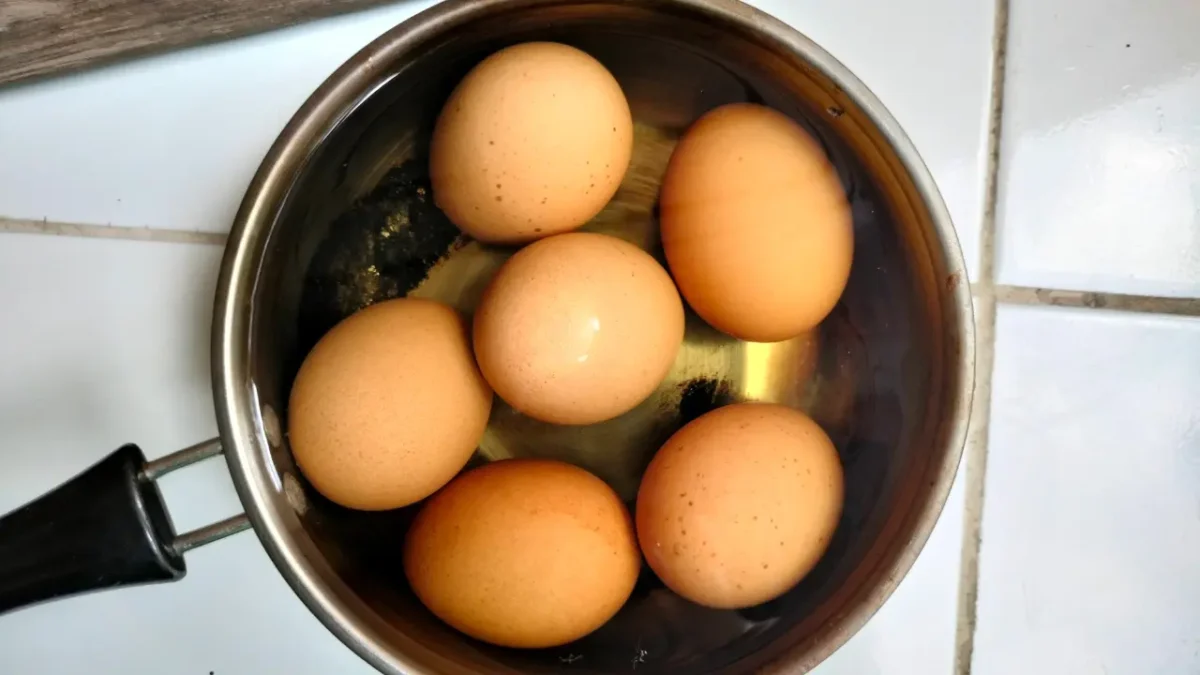Hey there, fellow egg enthusiasts! Ever found yourself staring at a carton of eggs, wondering how to turn those oval wonders into the perfect boiled treat? Well, you’re in luck! Today, we’re diving deep into the world of egg boiling, and trust me, it’s going to be egg-citing (sorry, couldn’t resist)!
Why Boiled Eggs Are the Breakfast MVP
Before we get cracking (okay, last pun, I promise), let’s talk about why boiled eggs deserve a spot in your culinary repertoire. They’re not just delicious; they’re also:
- Packed with protein
- Low in calories
- Versatile (hello, egg salad sandwiches!)
- Budget-friendly
- Perfect for meal prep
Now that we’ve established their awesomeness let’s get down to business.
The Science Behind the Perfect Boil
Boiling an egg might seem simple, but there’s actually some pretty cool science going on inside that shell. When you heat an egg, the proteins inside start to change. They unravel and form new bonds, which is what turns the liquid egg white and yolk into that delicious, solid consistency we all love.
But here’s the kicker: cook them too long, and you’ll end up with that dreaded green ring around the yolk. Nobody wants that! So, timing is everything when it comes to boiling eggs.
How to boil eggs:
Let’s Get Cracking: The Ultimate Boiling Method
Alright, it’s time to roll up those sleeves and get boiling! Here’s your step-by-step guide to egg perfection:
- Choose your eggs wisely: Fresher isn’t always better for boiling. Eggs that are a week to two weeks old are actually easier to peel. Who knew?
- Prep your pot: Fill a pot with enough cold water to cover your eggs by about an inch. Why cold water? It helps prevent cracking and ensures even cooking.
- Add a pinch of salt: This can help prevent cracking and make peeling easier later.
- Gently lower your eggs: Use a slotted spoon to carefully place your eggs in the water. Dropping them in might cause cracks, and nobody likes a leaky egg!
- Bring to a boil: Turn up the heat and wait for that rolling boil.
- Time it right: Once boiling, reduce heat to a simmer and set your timer based on your desired doneness:
- Soft-boiled: 6-7 minutes
- Medium-boiled: 8-9 minutes
- Hard-boiled: 10-12 minutes
- Ice bath time: As soon as your timer dings, transfer those eggs to a bowl of ice water. This stops the cooking process and helps prevent that green ring we talked about earlier.
- Peel and enjoy: After about 5 minutes in the ice bath, your eggs are ready to peel and devour!
Troubleshooting: When Good Eggs Go Bad

Even the best of us can run into egg-mergencies (okay, I lied about the puns). Here are some common issues and how to fix them:
- Eggs cracking during cooking: Try adding eggs to already boiling water instead of starting with cold water.
- Difficult to peel: Use slightly older eggs or add a teaspoon of baking soda to the cooking water.
- Undercooked centers: Increase cooking time by 1-2 minutes next time.
- Overcooked with green rings: Reduce cooking time and make sure to use that ice bath!
Beyond Basic Boiling: Egg-citing Variations
Now that you’ve mastered the basics, why not try some variations?
- Jammy eggs: Cook for 6.5-7 minutes for that perfect, gooey center. Great on avocado toast!
- Tea eggs: Crack the shells slightly after boiling and simmer in tea and spices for a marbled, flavorful twist.
- Instant Pot eggs: Use your pressure cooker for hands-off, consistent results every time.
Storing Your Boiled Beauties
Got leftovers? Lucky you! Properly stored hard-boiled eggs can last up to a week in the fridge. Keep them in their shells and place them in an airtight container for best results.
Egg-cellent Ways to Use Your Boiled Eggs
Now that you’re a boiling pro, put those skills to use! Here are some ideas:
- Classic deviled eggs
- Cobb salad
- Egg salad sandwiches
- Pickled eggs
- Sliced on top of ramen or other soups
Wrapping It Up
There you have it, folks – everything you need to know about boiling eggs like a pro. From soft and jammy to perfectly hard-boiled, you’re now equipped to tackle any egg-venture that comes your way.
Remember, practice makes perfect. Don’t be afraid to experiment with different cooking times to find your ideal egg texture. And hey, even if they don’t turn out perfect every time, they’re still eggs-tremely delicious (I couldn’t resist one last pun)!
So go forth and boil with confidence. Your taste buds (and your Instagram followers) will thank you. Happy boiling!
Also Read:
How to Befriend a Cat: A Comprehensive Guide
How to Ask a Professor for a Letter of Recommendation: A Student’s Guide
How to Change Your Mind: A Guide to Embracing New Perspectives

